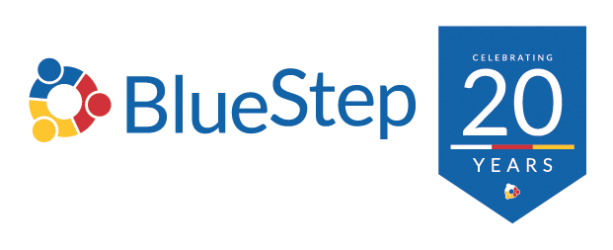The term “behavioral health” has become increasingly prominent in today’s rapidly evolving healthcare landscape. Behavioral health refers to the connection between the health and well-being of the body and the mind, encompassing both mental health and substance use disorders.
Technology is revolutionizing behavioral health services. Behavioral health software is a powerful tool in this revolution, designed to support the unique needs of mental health and substance abuse treatment providers. This software streamlines various aspects of care delivery and plays a crucial role in enhancing the efficiency and effectiveness of behavioral health services.
As we delve deeper into this topic, we will explore the intricacies of behavioral health, understand the functionalities and benefits of behavioral health software, and examine how these technological solutions are transforming behavioral health services. This exploration is not just about understanding a piece of technology; it’s about recognizing a vital component in the journey toward holistic health and wellness.
Understanding behavioral health
Behavioral health, a term often used interchangeably with mental health, encompasses a broad spectrum of services for individuals with mental health or substance use disorders. It extends beyond the realm of mental illness. It also incorporates the presence of positive mental attributes like the ability to manage life’s stresses, maintain fulfilling relationships, and demonstrate resilience in the face of adversity.
This holistic approach recognizes that behavioral health is an integral part of overall health, emphasizing the interconnection between mental and physical well-being.
Behavioral health boosts the overall health of individuals and communities. Good behavioral health contributes to many positive outcomes, including improved physical health, enhanced quality of life, and increased lifespan.
Conversely, untreated behavioral health issues can lead to significant physical health problems, reduced quality of life, and increased healthcare costs. This underscores the need for effective behavioral health services as a core component of comprehensive healthcare.
However, providing these services comes with its own set of challenges. One of the primary obstacles is the stigma often associated with mental health and substance use disorders, which too often deters individuals from seeking help. Additionally, there is a shortage of qualified behavioral health professionals, which can limit access to care, especially in rural or underserved areas.
Financial constraints, both for providers and patients, also pose significant barriers, as does the need for ongoing training and education in the latest treatment methodologies. Integrating behavioral health services with other healthcare services remains challenging. This is often due to differences in treatment approaches, documentation, and reimbursement models.
Addressing these challenges requires a multifaceted approach, including increasing public awareness to reduce stigma, expanding training and education opportunities for healthcare providers, and improving access to care through innovative service delivery models.
By tackling these issues, the healthcare industry can enhance the provision of behavioral health services, ultimately leading to healthier, more resilient communities.

The emergence of behavioral health software
In the realm of healthcare, the emergence of behavioral health software marks a significant milestone, especially in addressing the unique needs of mental health and substance use disorder treatment.
Behavioral health software is a specialized type of electronic health record (EHR) system designed specifically for mental health professionals. It streamlines various aspects of patient care, from intake and diagnosis to treatment planning and billing. This software organizes patient information while also providing tools for treatment planning, progress tracking, and communication with healthcare providers.
Historically, the field of behavioral health has lagged behind other healthcare sectors in adopting technology. For many years, mental health professionals relied heavily on paper records and face-to-face interactions. The shift began with the broader healthcare industry’s move towards digitalization, spurred by technological advancements and a growing recognition of the importance of integrated care.
As electronic health records became the norm in medical settings, specialized software for behavioral health began to emerge, addressing the unique requirements of mental health services, such as detailed progress notes, treatment plans, and privacy concerns specific to mental health data.
Important features of behavioral health software include secure patient record management, which ensures confidentiality and compliance with regulations like HIPAA.
Treatment planning tools allow for the creation of customized care plans, integrating various therapeutic approaches and tracking patient progress over time.
Scheduling functionalities streamline appointment management, while billing features support the complex insurance and reimbursement landscape of mental health services.
Additionally, many of these systems offer telehealth capabilities, reflecting the growing trend towards remote therapy sessions.
The evolution of behavioral health software represents a significant leap forward in the field. It enhances the efficiency and effectiveness of care delivery and plays a crucial role in integrating behavioral health into the broader healthcare ecosystem.
By providing tools tailored to the specific needs of mental health professionals, this software is helping to break down barriers, improve access to care, and ultimately contribute to better patient outcomes in the behavioral health field.
Benefits of behavioral health software
The advent of behavioral health software has brought about transformative benefits to the field of mental health and substance use disorder treatment. These benefits are multifaceted, touching upon the quality of care, administrative efficiency, and patient outcomes.
First and foremost, behavioral health software significantly enhances the quality of care provided in behavioral health services.
By offering comprehensive and integrated tools for patient assessment, treatment planning, and progress tracking, this software enables mental health professionals to deliver more personalized and effective care. It facilitates a deeper understanding of each patient’s unique needs and challenges, allowing for more targeted and evidence-based interventions.
Moreover, the ability to easily access and review detailed patient histories and treatment plans ensures continuity of care, which is crucial in treating behavioral health issues.
From an administrative standpoint, behavioral health software streamlines processes that were traditionally time-consuming and prone to errors when handled manually.
Tasks such as scheduling appointments, managing patient records, billing, and processing insurance claims become more efficient and accurate with behavioral health software. This efficiency and accuracy saves time for healthcare providers and reduces administrative burdens, allowing them to focus more on patient care rather than paperwork.
Perhaps one of the most significant impacts of behavioral health software is its role in improving patient engagement and outcomes. With features like secure messaging, telehealth capabilities, and patient portals, patients are provided with more accessible and flexible options for communication and treatment.
This increased accessibility can lead to better engagement in the treatment process, as patients feel more connected and involved in their care. Additionally, using analytics and reporting tools within these software systems helps clinicians track patient progress more effectively, adjust treatment plans as needed, and ultimately achieve better health outcomes.
Behavioral health software is not just a technological advancement; it’s a catalyst for improving the entire spectrum of behavioral health services. By enhancing the quality of care, streamlining administrative tasks, and improving patient engagement and outcomes, this software plays a pivotal role in advancing the behavioral health field.
Choosing the right behavioral health software
Selecting the right behavioral health software is a critical decision for any healthcare provider specializing in mental health and substance use disorders. The effectiveness of treatment and the efficiency of operations hinges on this choice. There are several key factors to consider to ensure that the software aligns with the specific needs of a practice or facility.
Functionality
Firstly, the functionality of the software is paramount. It should offer comprehensive features that cater to the unique aspects of behavioral health treatment, such as detailed progress notes, customizable treatment plans, and robust patient management systems.
The software should also be intuitive and user-friendly to minimize the learning curve for staff and reduce the time spent on administrative tasks.
A well-chosen system enhances the efficiency and effectiveness of behavioral health services and ensures the safety and privacy of patient information.
Integration
Integration with existing healthcare systems is another consideration. The chosen software should seamlessly interface with other electronic health record systems, billing software, and any other technology used in the healthcare setting.
This integration is vital for ensuring continuity of care, facilitating easy access to patient information, and streamlining administrative processes. It also aids in maintaining a holistic view of a patient’s health, which is essential for effective treatment planning and coordination of care.
Compliance and security
Compliance and security are also critical factors in selecting behavioral health software. The software must comply with all relevant healthcare regulations, including HIPAA in the United States, to protect patient privacy and data security. It should have robust security features to safeguard sensitive patient information against unauthorized access and data breaches.
Additionally, the software provider should demonstrate a commitment to staying abreast of changing regulations and updating the system accordingly.

The future of behavioral health software
The future of behavioral health software is poised at an exciting juncture, with emerging trends and developments promising to revolutionize the field further. Advancements in artificial intelligence and machine learning are at the forefront. These technologies could enable behavioral health software to analyze patterns in patient data, helping clinicians identify risks and intervene earlier.
Another significant trend is the increasing integration of telehealth capabilities. The recent surge in telehealth has demonstrated its effectiveness and acceptance among providers and patients. Future behavioral health software will likely enhance these features, making remote consultations and therapy sessions more seamless and integrated into the overall treatment plan.
The impact of these advancements on healthcare providers and patients is profound. Providers can expect more efficient and effective tools for diagnosis and treatment, while patients will benefit from more accessible, personalized, and proactive care.
As behavioral health software continues to evolve, it holds the promise of transforming the landscape of mental health and substance use disorder treatment, making it more responsive to the needs of both providers and patients.
Behavioral health software solutions at BlueStep Systems
As we reflect on the integration of technology in behavioral health services, it’s evident that innovative solutions like behavioral health software are not just tools for care but also catalysts for change. They empower providers to deliver more effective, efficient, and personalized care, ultimately enhancing the lives of those they serve.
It is vital that healthcare professionals embrace these advancements and recognize their potential to transform behavioral health services.
For those seeking to explore the possibilities of behavioral health software, BlueStep Systems is here to guide you. We are your one-stop shop for all your medical software needs. Contact BlueStep Systems to learn how our solutions can support your journey towards a more tech-enabled, patient-centric approach in behavioral health.


